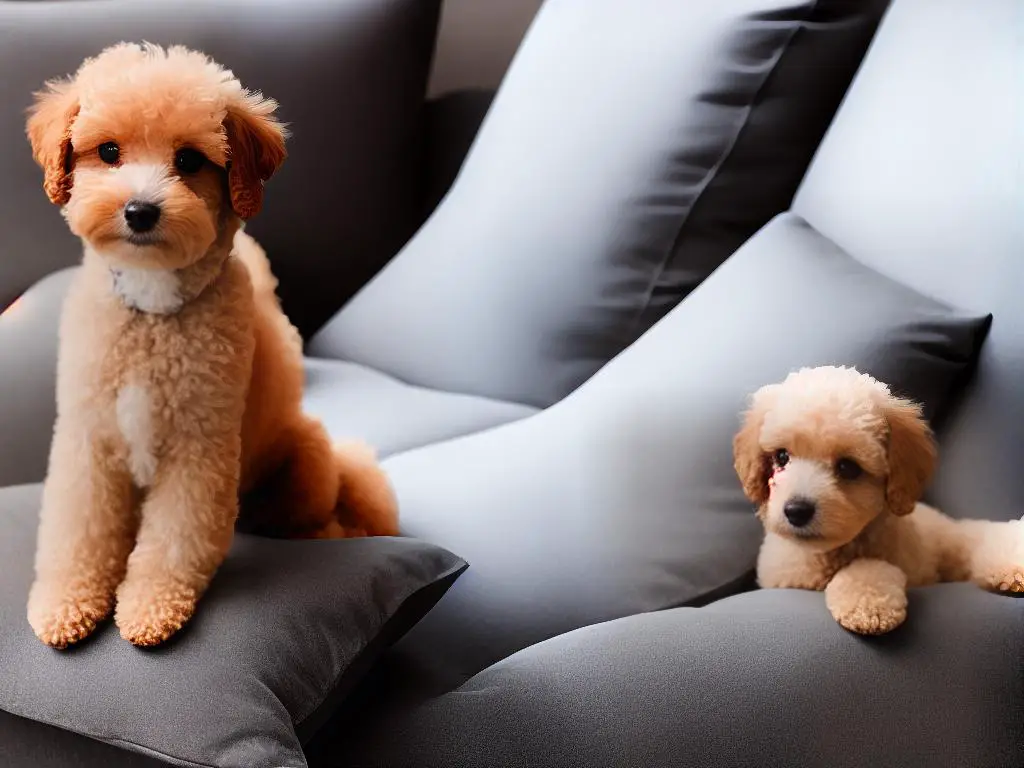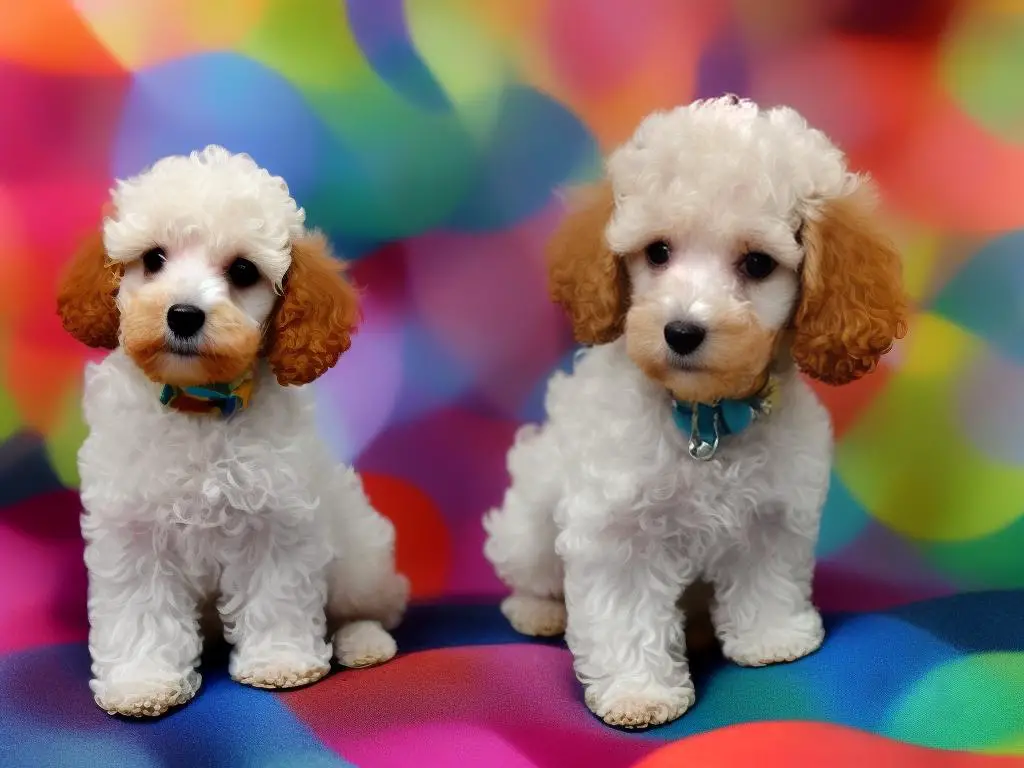All about Teacup Poodle Adoption: A Complete Guide
Encompassed in tiny frames but overflowing with bundles of personality, teacup poodles are a unique breed that make for both enriching pets and challenging life companions. This breed is known for its intelligence, elegance, and amiability but equally, it requires responsible and conscious adoption. This comprehensive knowledge capsule is created to equip enthusiasts and hobbyists with everything they need to know about adopting, caring for, and training teacup poodles. We delve into the world of teacup poodles, tracing their physical characteristics, temperament, and health conditions, elucidating the adoption process, and unraveling guidance on their care and training. This journey seeks to unleash the truth about owning these miniature bundles of joy and the pleasures and toils that come with it.
Understanding Teacup Poodles
Understanding Teacup Poodles
Physical Characteristics
Teacup Poodles have a distinct, sophisticated look, characterized by a square build, long and lean body, and a rounded skull. Their compact and petite size makes them easily portable and perfect for anyone looking for a small dog breed. They also have expressive and smart eyes, usually in dark brown or black colors. The breed has an elegant and effortless gait, showcasing their dignified and proud posture. Their curly and dense coat, which comes in a variety of colors, requires regular grooming to maintain its appearance.
Temperament and Personality
Teacup Poodles are endearing pets known for their fun-loving nature and intelligence. They exhibit a high degree of emotional sensitivity to their owners’ moods. This makes them great therapy dogs and joyous companions for the elderly, couples, and families with older children. Though small, Teacups are lively and adventurous. They love to explore and are quick to learn new tricks and commands, hence reinforcing their reputation as highly intelligent pets.
Health Considerations
Teacup Poodles are generally healthy, but they are known to have certain breed-specific health problems. The major ones include hip dysplasia, progressive retinal atrophy, addison’s disease, and certain cardiac conditions. Due to their small size and lightweight structure, they are also prone to injury and require careful handling. Regular check-ups with the vet and a balanced diet can help maintain their health.
Adopting a Teacup Poodle
When considering adoption, one must take into account that teacup breeds often come from problematic breeding practices and can face serious health issues. It’s crucial to work with reputable breeders who prioritize the dogs’ health and well-being. Thorough research and preparation are needed before adoption to ensure a good match between the owner and the pet.
The Benefits and Challenges
Owning a Teacup Poodle comes with many benefits. They are intelligent, loving, and easily adaptable to various living environments. Their small size makes them travel-friendly and easy to handle. However, possible challenges include their grooming needs, and potential health issues specific to their small size. Given their intelligent mind, they also require mental stimulation and can get anxious if left alone for long periods.
Embarking on the journey to adopt a Teacup Poodle is an exciting venture, albeit one that requires diligent understanding of the breed and comprehension of their specific needs. Knowing about these phenomenal pets and what it takes to care for them effectively can significantly influence the adoption process, making it smoother and facilitating a gratifying lifelong bond.

The Adoption Process
Adoption Process: Venturing into the world of teacup poodle adoption.
Teacup Poodles, with their diminutive size and irresistible charm, are always in demand. However, the path to adopting one of these delightful canines is multifaceted and necessitates thoughtful deliberation.
The primary step in the teacup poodle adoption journey is determining the right source for your prospective puppy. A plethora of options are at your disposal, including animal rescue organizations, breeders, and pet stores. It’s vital, though, to ascertain that the provider you choose adheres to ethical breeding practices to avoid indirectly endorsing puppy mills–a grim industry that overlooks the health and well-being of dogs purely for profit. Always lean towards establishments with robust reputations and glowing reviews, as these are more likely to prioritize the welfare of the dogs they cater to.
Additionally, becoming a teacup poodle owner involves complying with the legal prerequisites tied to dog ownership. These often include mandatory vaccinations, potential microchipping laws, and dog licensing requirements. Familiarizing yourself with animal ownership laws in your locality is key to avoid penalties and ensure you’re acting responsibly towards your new pet.
Typical Adoption Fees: Understanding the costs.
The financial aspect of adopting a teacup poodle is another vital feature that can’t be overlooked. The adoption fee varies greatly depending on the source from which you’re adopting – fees may range from a few hundred to a few thousand dollars. These fees typically cover the dog’s initial health check-up, vaccinations, and in some cases, the cost of spaying or neutering your dog. It is, however, beyond essential to consider other costs such as grooming, feeding, training, and potential vet bills that will be part of your teacup poodle’s life. An holistic understanding of these costs is key in assuring the ongoing wellbeing of your poodle.
The Adoption Journey: What Should You Expect?
Upon completion of the financial transaction and legal terms agreement, hopeful adopters often enter a waiting phase. This time-frame can vary greatly, taking anywhere from a few days to several weeks, depending on factors such as the volume of adoption applications and the successful completion of home evaluations. The adoption agency uses this waiting period to verify that the adoptive home will provide a safe and suitable environment for the teacup poodle.
Once the adoption application is approved, novice owners typically enter an adjustment phase where they begin bonding with their teacup poodle. This period allows both the adopter and the poodle to gauge if they are a good match. In some cases, if compatibility issues arise or overlooked concerns become evident, the adoption process can be reversed following the organization’s return policy guidelines.
In essence, enduring this extensive process with patience, carrying out thorough research, and fostering compassion for your tiny poodle are key ingredients in unlocking the long-lasting friendship that comes with adopting a teacup poodle.

Caring for Teacup Poodles
Understanding Teacup Poodle Care: A Comprehensive Guide
When bringing a teacup poodle into your home, it’s crucial to familiarize yourself with the unique care obligations associated with this breed. While they make for incredibly affectionate and rewarding companions, their diminutive stature also entails specific nutritional, grooming, and healthcare needs that potential adopters must be prepared for.
Understanding Dietary Needs
Deciphering a teacup poodle’s dietary needs can be difficult due to their small stature. Despite their size, they have a relatively fast metabolism that requires a regular feeding schedule. As a rule of thumb, these dogs should be fed three to four small meals each day rather than one or two large ones.
Teacup poodles do best on premium quality dog food formulated for small breeds or puppies. Choose a brand that is high in protein to support their growth and repair, and low in fillers such as grains and byproducts which can lead to obesity. Always consult with your vet to determine the best diet plan for your specific dog.
Grooming Your Teacup Poodle
While all poodles require regular grooming to maintain their unique, curly coat, the care required for a teacup poodle is slightly more intensive. Their small size leaves them more susceptible to catching cold, and overgrown hair can lead to serious skin problems. Daily brushing can help eliminate matting and tangling.
Generally, your teacup poodle should visit a professional groomer every 6-8 weeks for a thorough clean, clip, and check-up. Maintaining your poodle’s teeth is equally important; small breeds are particularly susceptible to dental diseases. Regular brushing and dental chews can help keep their teeth healthy.
Establishing Exercise Routines
Teacup poodles might be tiny, but they are big on energy. Regular exercise is vital to prevent behavioral issues such as chewing and excessive barking. A couple of short walks each day, along with playtime at home, can suffice.
However, due to their small size and delicate structure, they are more prone to injuries. Supervise your poodle during playtime to ensure they are not putting too much pressure on their joints or risking a fall.
Regular Health Checks and Potential Issues
Teacup poodles are also prone to certain health issues due to their size. This can include dental problems, hypoglycemia, digestive issues, and heart problems. Regular vet check-ups every 6-12 months are essential to catch any potential issues early on.
When adopting a teacup poodle, it’s crucial to understand these potential health threats and be willing to take swift action if necessary. Remember, despite their size, they require just as much commitment, love, and care as any other dog breed, if not more. Ensuring your teacup poodle is healthy requires effort and dedication, but the rewards are certainly worth it.
Achieving a successful teacup poodle adoption hinges on a trifecta: knowledge, commitment, and attentive care. Comprehending the special needs of these petite, enchanting, four-legged friends will set the stage for a harmonious, enduring bond between you and your new family member.

Training and Socializing Teacup Poodles
Navigating The ABCs Of Teacup Poodle Training
To facilitate a smooth transition for your teacup poodle into your home, it’s essential to pour significant time into their training. This training includes acquainting your new poodle with common commands, your household rules, and their appropriate social behavior. Feel free to embark on this journey as soon as your new furry friend gets comfortable in your home.
Bear in mind that effective training calls for relentlessness and patience, given the innate intelligence and quick learning capability of teacup poodles. Capitalize on positive reinforcement methods such as tasty treats, words of affirmation, and fun play sessions when they accurately respond to your commands. Begin with elementary commands like “sit,” “stay,” “come,” and gradually roll out more advanced ones.
Socializing Your Teacup Poodle: The Importance of Early Socialization
Early socialization is crucial in bringing up a well-rounded and mannered teacup poodle. The period between eight and sixteen weeks is essential for socialization. During this time, make sure your teacup poodle meets and interacts with different people, other animals, and different environments.
This exposure helps the dog understand that these elements are part of its life, reducing incidences of fear or aggression in the future. Remember, however, that their tiny size makes them fragile, so all socializing activities ought to be supervised to prevent accidents.
Dealing With Behavioral Issues: Common Challenges and Solutions
Even with proper training and socialization, teacup poodles may develop behavioral issues. Some common problems include separation anxiety, stubbornness, excessive barking, and aggression.
For separation anxiety, make sure your Teacup Poodle becomes accustomed to being alone for short periods and gradually extend this time. Avoid emotional departures or greetings, which could stress them.
If your poodle exhibits stubbornness, establish yourself as the pack leader and consistently enforce house rules. Excessive barking can be managed by identifying triggers and engaging the dog in exercises like commands to distract them. Conversely, for aggressive behavior, seek the help of a professional dog trainer or behaviorist.
In conclusion, adopting a teacup poodle requires you to invest in training and socializing the puppy early. Dealing with behavioral issues should also be expected. Adopting such a dog can be a rewarding experience when done responsibly and with the right information.

Being a teacup poodle companion is an exciting, demanding, and intensive journey of love, joy, challenges, and growth. As we’ve highlighted, the intricacies span from understanding these vibrant little beings to making an informed adoption decision, and onto ensuring they are cared for, nurtured, and trained correctly. These minute-size breeds bring a surfeit of affection and warmth into our lives, reserved not just for anyone, but for those who can match their energy, commitment, and caring needs. As you embark on this journey, bear in mind what has been shared about teacup poodles, adapt it to your pet-parenting style, and you’ll experience a rewarding companionship like no other. There is indeed much more to these little pooches than meets the eye, a world teeming with love, energy, and inimitable joy only awaiting your adventurous stride into it.

